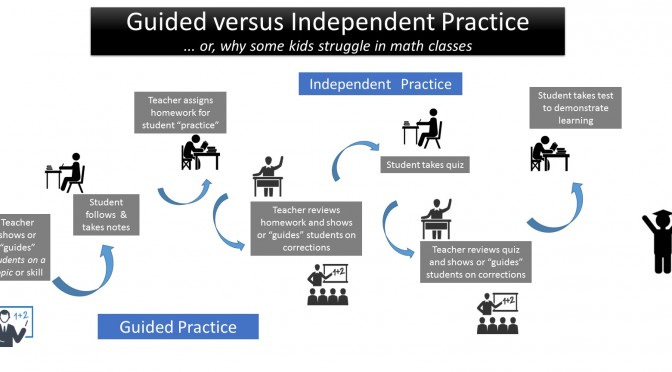 At the A+ Club, we make strong claims for the power of mentoring. We believe that consistent, positive feedback from caring, experienced, and non-judgmental educators empowers students by building lifetime skills and habits of reflection, goal setting, and general self-betterment.
At the A+ Club, we make strong claims for the power of mentoring. We believe that consistent, positive feedback from caring, experienced, and non-judgmental educators empowers students by building lifetime skills and habits of reflection, goal setting, and general self-betterment.
A Gallup-Purdue study of the impact of mentoring on college students in post-graduate job success and all-round well-being already proves our theory (see Mentoring Students for a Lifetime of Success). What the Gallup-Purdue study doesn’t say but is implicit to the results is that mentoring is neither casual nor predetermined.
Note that the study did not point to “advisors” or “guidance counselors” for impact on students. In fact, the absence of those terms in the study is significant. Mentoring relationships are not appointed, they are not pre-selected or administered from above. They develop organically through sharing, trust, care, expertise, authenticity, and constancy.
Mentoring is…
-
Sharing: effective mentoring is empathetic.
-
Trust: mentoring without trust is just more random advice.
-
Care: the effective mentor is selfless, non-judgmental, patient, and caring.
-
Expert: the effective mentor delivers something of value.
-
Authentic: effective mentors don’t condescend or merely guide from above; their mentoring comes from the heart.
-
Constant: effective mentoring is regular, not occasional or random.
Why Guidance Counselors Aren’t Mentors
Imagine that a high level executive at a major company mentors up-and-coming professionals. Imagine that some of these protégés ultimately report to that executive, if not directly, then through other chains of command. If so, there is with great difficulty any mentoring, as it’s just another power-relationship, however well-intentioned.
Now, imagine that a high school student receives mentoring from an educator at the school. We call those “Guidance Counselors,” and they have no less administrative weight than does our executive. They are both firmly a part of an institutional power structure and are therefore inherently judgmental and authoritative.
This doesn’t mean an executive or a guidance counselor can ‘t be an effective mentor — it does mean that each has the burden of authority to overcome in order to deliver mentoring that is authentic and trustworthy.
So, yes, we can imagine that executives or guidance counselors can make effective mentors. Absolutely. But it is harder to imagine that they can be effective mentors to more than a few protégés or students with whom they can create authentic relationships.
They not only have to overcome the burden of authority (which severely challenges authenticity), they have to overcome the burden of a strained caseload. Thus the largest reason that guidance counselors don’t make good mentors is that, according to Time,
A public school counselor in the U.S. now has an average caseload of 471 students….
(from The High School Guidance Counselor Shortage, Dec. 03, 2013)
Try being caring, empathic, authentic — and constant — with 471 students! Not possible. A guidance counselor can mentor some of the students some of the time but none or a very few of them all of the time.
A+ Club Student Mentoring
Our view is that effective mentoring starts with the student, not the mentor.
When we take on a student, it is by student choice. We cannot mentor a student who is not interested in self-improvement, and we don’t. We don’t get past a first conversation with such a student (and I’ve only run into 2 or 3 over my three years in this business).
The only way we can start with a student is if that student sincerely wants academic improvement. And we never define it for our students: it’s up to them what that means. Once we have established goals, then we can work on deliberate, realistic steps towards them with confidence, trust, and care.
Our authenticity comes of the concern we show and the expertise we bring. Our teachers — whom we call “Student Supporters” — are experienced, active educators, and they only do this work because they care, because they enjoy establishing a relationship with a student whom they do not grade, whom they do not judge. Freed authority, they are free to care without judgment.
Once our teachers have established that trust, once they have established their care and expertise, then they have an authentic relationship. Then the only missing ingredient for effective, powerful mentoring is constancy, which they bring through scheduled, weekly or more reflection, goal setting and problem-solving conversations .
Our teachers love this work. And they also know how emotionally taxing it is, for they care so much for each child. They only take on a few, some choosing to work with only one student, and the rest taking on no more than a few to work with, guide, counsel, and help along towards a brighter future each and every week.
We know it works, and not just because our kids do better in school. We know it works because our students are ready and eager to take that mentoring call every week.
– Michael
 With academic writing or other research projects, student improvement has a single source: drafting. Students will always score a better grade if they don’t hand in a “first draft” to the teacher.
With academic writing or other research projects, student improvement has a single source: drafting. Students will always score a better grade if they don’t hand in a “first draft” to the teacher.


 Megan Rocks! Megan and Michael discuss how the A+ Club helps students, parents and teachers.
Megan Rocks! Megan and Michael discuss how the A+ Club helps students, parents and teachers.
 At the A+ Club, we make strong claims for the power of mentoring. We believe that consistent, positive feedback from caring, experienced, and non-judgmental educators empowers students by building lifetime skills and habits of reflection, goal setting, and general self-betterment.
At the A+ Club, we make strong claims for the power of mentoring. We believe that consistent, positive feedback from caring, experienced, and non-judgmental educators empowers students by building lifetime skills and habits of reflection, goal setting, and general self-betterment.








